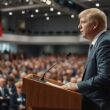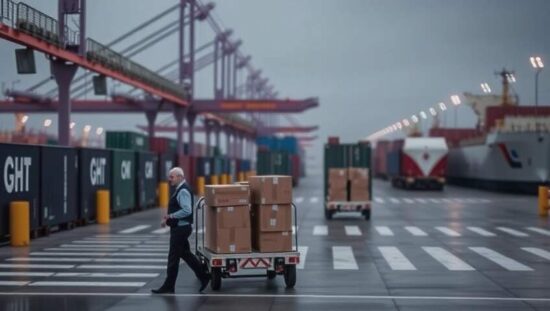The plans of the new Federal Minister of the Interior, Alexander Dobrindt (CSU), for stricter border controls are encountering resistance in the economy. “The Coronacrisis has already shown that restricted border traffic can burden the economy” said Volker Treier, head of international trade at the German Chamber of Commerce and Industry (DIHK), to the “Handelsblatt” (Thursday edition).
In pursuit of the goal of curbing irregular migration, policy should therefore “keep in mind that important deliveries and cross-border trade should function as smoothly as possible.” A functioning European internal market and the Schengen area are “essential” for the strongly internationally connected German economy, said Treier.
The DIHK expert also warned against greater restrictions for border commuters and service providers. He specifically mentioned the regional retail trade, border gastronomy and the care and health sectors. These industries rely on free goods and passenger traffic, said Treier. He also pointed out that intensified controls would have higher storage costs for companies. So-called “just-in-time deliveries” would also be more difficult. “All of this is additional burden for the economy in economically strained times.”
The president of the Association of Exporters, Dirk Jandura, called for time-limited controls. “If intensified controls are necessary for the protection of the population, we of course accept that” said Jandura to the “Handelsblatt” (Thursday edition). “But these restrictions should only be temporary.”
The logistics industry is calling for close cooperation with the Ministry of the Interior and the Ministry of Transportation to avoid bigger problems. “Green Lanes” could be established if necessary, said Dirk Engelhardt, spokesperson of the Federation of Freight Forwarding, Logistics and Waste Management (BGL), to the “Handelsblatt” (Thursday edition). Green Lanes are extra lanes only for freight traffic, on which trucks can pass the borders without or with only slight delays.
The terms “illegal migration” “irregular migration” and “undocumented migration” are often used synonymously. The vast majority of asylum seekers who come to Germany are initially considered “illegally arrived” because they cannot file applications for asylum before their arrival. However, in Germany, they can exercise the right to seek asylum or the guarantees of the Geneva Refugee Convention and legally file an application for asylum. If the applications are approved, the refugees are considered to be regular residents.





